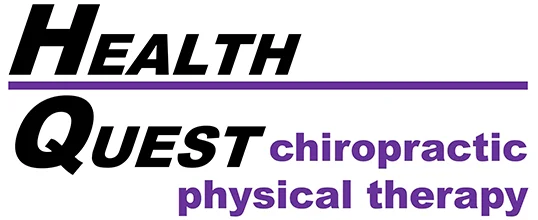Post-Concussion Syndrome Therapy - Maryland
Our team can provide a range of therapies designed to address the various symptoms of Post-Concussion Syndrome.
Using a wide variety of modalities, and by making sure patients are comfortable with their therapy program every step of the way,
our staff will help patients regain health and normalcy, overcoming this serious condition.
Did you know that even with treatment, those who experience a concussion can still develop Post-Concussion Syndrome?
Our specialists are equipped to treat patients who are not responding to standard concussion protocols using safe, drug-free therapies.
FAQs on Concussions
What is a Concussion?
Concussions are a type of traumatic brain injury — or TBI — caused by one of two primary causes:
- A bump, blow, or jolt to the head
- A hit to the body that causes the head (and brain) to move rapidly back and forth
No matter the exact cause, in these scenarios the brain can bounce around or twist in the skull. The movements begin creating chemical changes in the brain, and sometimes stretch and damage brain cells and tissue as well. The results may be classified as a concussion.
It’s a common misconception that a concussion results from being hit so hard that you are “knocked out.” A hit does not need to lead to unconsciousness to cause a concussion.
Additionally, all concussions are serious and should therefore be taken seriously, including those classified as mild.
What Are the Signs and Symptoms of a Concussion?
Evidence of a concussion can go beyond a physical presentation and may persist in virtually all aspects of a patient’s mental function.
With that in mind, common signs and symptoms of this health issue include:
Physical
- Headache
- Dizziness
- Balance problems
- Sensitivity to noise/light
- Nausea/vomiting
- Blurry vision
- Fatigue
- General body aches
Cognitive
- Difficulty thinking clearly
- Feeling slowed down
- Difficulty concentrating
- Trouble remembering new information
Emotional/Mood
- Irritability
- Anxiety
- Mood swings
Sleep
- Sleeping more or less than usual
- Trouble falling asleep or staying asleep
What Are the Treatment Options for a Concussion?
Treatment for a concussion is often multi-layered, as different treatments may be needed to address different symptoms and triggers in each patient. The following are some standard protocols that patients may be prescribed as needed:
- Physical Rest: No physical exertion or participation in sports activities until symptoms are resolved.
- Brain Rest: Limited TV, reading, phone use, video games, and school work/school days.
- Medication: Symptom relief with Tylenol (i.e., Acetaminophen) for body aches and headaches, or Triptan class of drugs for migraine headaches.
What if Treatment Does Not Yield Improvement?
Roughly 20% to 30% of people who sustain a concussion are not successful in eliminating all of their symptoms within a month using standard medical protocols. When this happens, patients are diagnosed with Post-Concussion Syndrome. Warning signs that Post-Concussion Syndrome may be present include the persistent presence of any concussive symptoms listed above (i.e. presenting for longer than a month’s time), and/or the worsening of these symptoms at any time.
How Can We Help?
Our team can assist patients who are not responding to standard concussion protocols and care. Our treatments for Post-Concussion Syndrome are non-drug based, non-surgical, and safe to be used in conjunction with the majority of concurrent medical therapies. They can include any necessary combination of the following:
- Vestibular Rehabilitation Therapy (VRT) & Ocular Rehabilitation Therapy: These therapies are often used to treat balance disorders and vision issues, respectively. When used to treat concussions, they can help address persistent symptoms of dizziness, headache, poor balance/coordination, and visual dysfunction.
- Non-Invasive Neuromodulation: This research-based, peer-reviewed treatment uses vagus nerve stimulation, among others, to calm overactive nerves and stimulate underactive nerves. The treatment can strengthen/modulate neural pathways associated with head pain and balance/dizziness.
- Motion Guidance: This type of therapy can strengthen proprioception – the perception or awareness of the position and movement of the body.
- Physical Therapy/Manual Therapy: Hands-on therapies can help decrease spasms, improve a patient’s range of motion, and increase stability, which further supports physical concussion recovery.
- Nutraceutical Interventions: These treatments decrease persistent neuroinflammation in the brain with natural supplements such as Omega-3 fatty acids, curcumin, and resveratrol.
